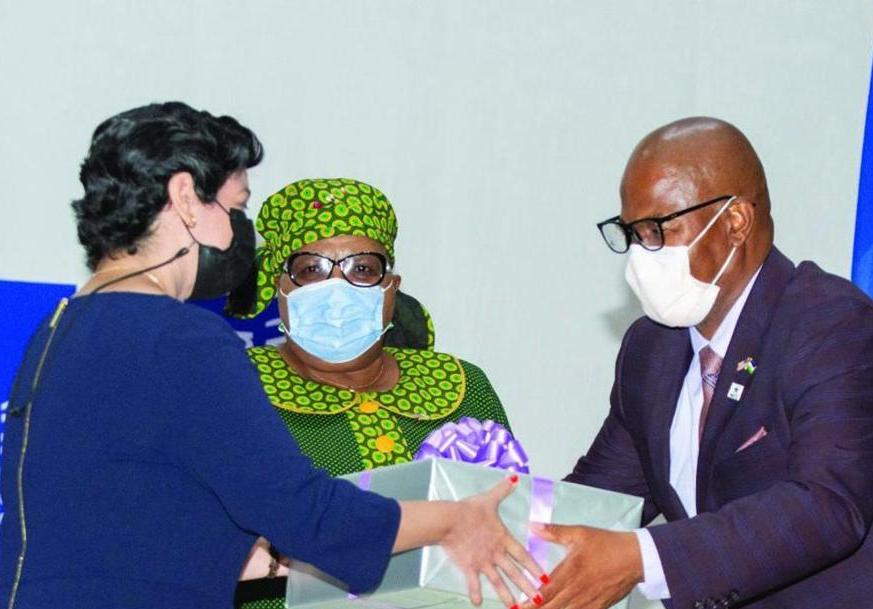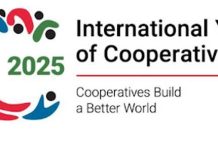Africa-Press – Lesotho. More than 80 000 jobs could be created with the implementation of the second Compact between Lesotho and the United States of America, which will be focusing on enhancing rural economic activities for women and youth among an array of development projects.
Lesotho and US government on Thursday this week signed a $300 million (about M4.8 billion) Millennium Challenge Corporation (MCC) second compact, running for the next five years.
The signing also marked an important milestone in relations between the two countries, this being the first time for the final deal to be signed in the recipient country.
The compact will focus on strengthening health systems, rural economic development through irrigated horticulture, and improving business environment and technical assistance.
Speaking at the signing ceremony Prime Minister Dr Moeketsi Majoro said the signing is a conclusion of an eight-year journey since December 2013 when Lesotho was selected for the second compact.
He said it has been a journey of negotiations that led to the signing the second MCC compact. He said the signing also marks the start of five to six years of the second compact implementation and reform that brings with it aggressive execution of the project.
Majoro said with the aggressive execution of the compact, they expect that at least 80 000 to 90 000 jobs to be created for the youths of this country.
“Today I am proud to announce that bank lending jumped from 15 percent of deposit pre-compact to nearly 60 percent of deposit post-compact,” he also said, signaling regained confidence in the economy for investors.
He said the $300 million compact signed this week, comprises three carefully selected interventions aimed to rapidly increasing investment, economic growth and employment in the country and improving delivery of health services to all Basotho.
“The income interventions under this project which is the business environment and technical assistance entails feasibility studies, technical assistance, incubator accelerators and business advisory services coupled with business dialogues, market relations and developments, value chains analysis and innovative business funding processes,” he said, noting this would be a good entry in tackling some of the biggest challenges for the country.
Majoro further said micro, small and medium enterprises owned by women and young people will be formed or expanded under this compact, adding that complimenting this and larger initiatives, focus will be on irrigated horticulture covering some 2 000 hectares in the selected areas of Tsoili-tsoili in the Kolonyama area, Peka, Leribe and Phamong.
The government of Lesotho will further mobilise funding to increase the area covered from 2 000 to 10 000 hectares during the life of the compact, Majoro added.
He noted that the health initiatives under Compact I will be enhanced by digitisation of the entire health system for better health checking and services further pointing out that the compact should serve as a platform for collaboration in their quest to increase investment, economic growth and employment from within the project focus areas.
“The World Bank, the African Development Bank, the United Nations, the ministry of small business, the ministry of trade and industry, the cabinet investment committee and the Office of the Prime Minister are designing and implementing various strategies through gender employment, “I call upon all the partners to carefully examine the innovations under this compact with the view of adopting the complementary one.
I also invite all of you to take part in the scaling of our areas of interventions while also focusing on poverty stricken areas. “Our original ideas included a tourism initiative that linked Malea-lea, Semonkong and Ketane and Mount Moorosi through the provision of the roads,” he cited as an example.
Speaking on the achievements made through the first compact, Majoro said the textile sector which before the first compact was having problems with water supply, today has enough water and has not experienced any shortage.
He also said that as a result of several reforms, Lesotho today treats women and men alike. He also noted that banks have better information about borrowers’ credit history and can now lend with reduced risk with the help of a credit registry that was established under Compact I.
This first Compact was completed in 2013 where MCC invested $362.5 million to increase economic growth and reduce poverty by improving water supply, increasing access to essential health services and removing barriers to private sector investment.
The Compact resulted in over 140 rehabilitated clinics and outpatient departments, 2 300 household water connections and construction of Metolong Water Treatment Plant and independent or joint land titles for over 17 000 women.
He said through the instrumentation of the previous compact, Lesotho today is much more of an equal society. He further said Lesotho is making headway in dealing with trafficking in persons as well as terrorism and its financing.
Majoro noted that more still needs to be done and they are committed to doing so. The first MCC compact positively impacted Lesotho by eliminating constraints to grow the economy, he said, noting that the compact sought to achieve the critical goal of addressing health as a pull back to economic growth.
He said the intervention included upgrading 138 health centres and 14 hospitals around the country. He said the value of the intervention is seen and, as of now, 30 000 latrines have been installed around the country, as well as delivering potable water to up to 150 000 households in the surroundings of Maseru and countrywide.
The second intervention, he said, was to remove obstacles to business investment including providing and stabilising water supply to industries and appropriate several investment plans at the reforms and complimentary social legislations.
US Ambassador to Lesotho Maria E Brewer said the vision for Lesotho’s development goals is consistent successes, today, tomorrow, next week and in years to come. She said today’s compact signing between Lesotho and the United States government marks an important milestone towards that vision.
She said the pillars on which the compact is built, that is, health sector strengthening, rural economic development through irrigated horticulture, and business environment and technical assistance, compliment areas of engagement where government of United States is already acting.
She said focusing on health system strengthening will come back to add value to their legacy of deep engagement in the health sector. The US envoy noted that the history of support has helped Lesotho to create success and achieve targets in fighting HIV and AIDS. The new compact will enable Lesotho to establish a strong public health foundation to build a brighter future, she said.
The signing, which comes just a few months before the dissolution of parliament and holding of the general elections, has been seen as one of the components that will ensure that whatever new government is coming, will already have to subscribe to the terms of the new project drivers – which include good governance, human rights respect and fighting human trafficking and terrorism as well as activities of funding it. The compact was finally signed after several withdrawals and delays and readjustments in the country’s mandate to meet the requirements.
For More News And Analysis About Lesotho Follow Africa-Press






